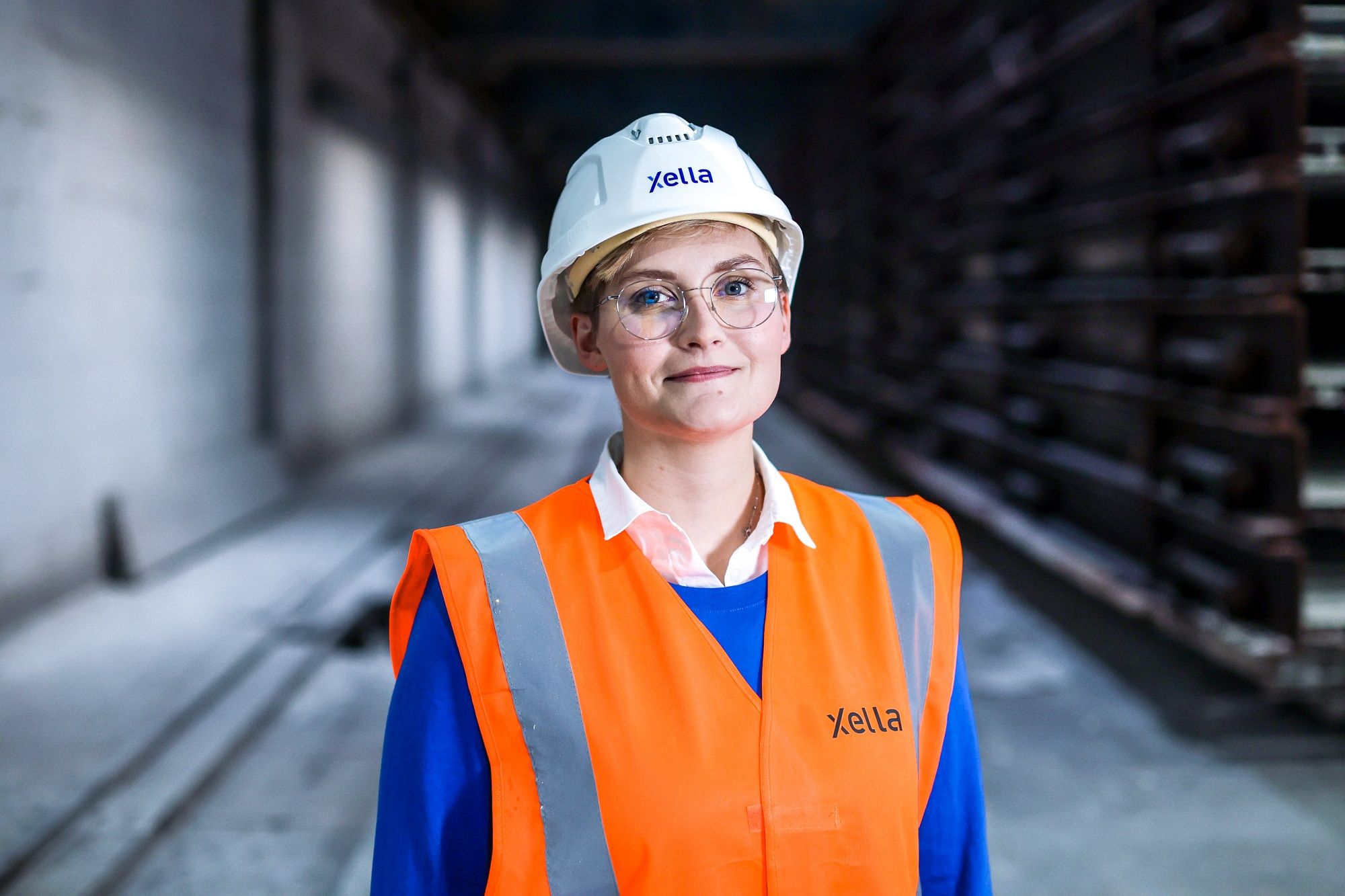Ms Kalitz, you have been responsible for the plant for a year now. Before that, you managed the production and logistics of a gourmet food manufacturer. What attracted you to the change to sand-lime bricks?
I was able to train quickly in new topics at Xella and you learn the most through a change of industry. Xella gave me the chance to manage a plant. That's something I've always wanted. I love it when no two days are the same.
You learned your profession from the bottom up.
That's true and helps me a lot, in the past as a site manager and today at Xella. After my technical apprenticeship, I did my craftership master diploma in metal processing at the evening school parallel to my first position as production manager.
How did you manage to do all that so quickly at the age of 27?
I come from a family of electronics engineers. The subject is almost in my DNA. But I have already wanted too much.
What do you mean by that?
The master's degree in evening school parallel to work - I wouldn't do that today. But learning a profession from the bottom up is something I can only recommend. It does not only expand your practical knowledge, but also makes it easier to deal with a wide variety of people. That is just as important to me as technology.
How do you live this in Möllenhagen?
We are a small team of ten colleagues. Once a month we have breakfast together and every morning we meet for a team dialogue, as it is standard at all Xella plants in Germany.
What is it all about?
Safety is our top priority and therefore always comes first. So we start the dialogue with a Safety Moment.
What is that exactly?
At the beginning, the employees report on a so-called safety moment. This draws everyone's attention to the issue of safety. The goal of a Safety Moment is to help all employees recognise potential hazards and take appropriate action to avoid them. Just to name a few: always stay alert to the issue of safety, wear appropriate PPE, use handrails when climbing stairs. The team dialogue is also about the performance of our site.
The exchange does not stop there. Everyone is encouraged to say where he or she sees a need for action in the plant, where a repair is needed or where we require support from a specialist company. So I not only have daily contact with every employee. Through our close exchange, I also have the chance to identify very quickly where something is not running well. It is important to me that everyone in the team knows that their work, experience and assessment are valued.
Does that mean you also get feedback more quickly from the other team members?
Fortunately, that happens. I appreciate clear communication on both sides when it comes to difficult issues. That is also a sign of mutual appreciation.
Your predecessor as plant manager was probably a completely different person from you. Was that a big change for your team?
It was certainly an adjustment, but with clear communication, transparency and appreciation, it works.
